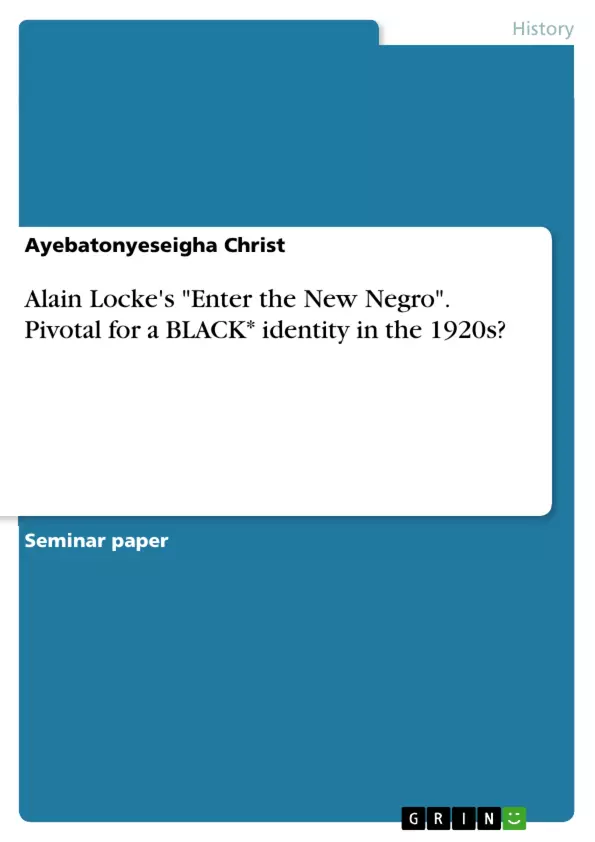Identity. A word that defines our whole being as humans. Psychoanalytics in the likes of Sigmund Freud and Erik H. Erikson have asked themselves this very question, what is identity and how does it affect us as humans? Whilst identity has been beneficial for certain groups on earth, this hasn’t been the case for African Americans in the 19th and 20th century, as the trail-blazing cultural theorist Stuart Hall, in his inimitable way disputes it in "Cultural Identity and Diaspora".
The identity of African Americans overall in the American Society has always been dictated by the majority society who were mostly white. The identity of African Americans was solely depicted in a negative light. With their new-found freedom, African Americans were bound to change the narrative of their thitherto identity, through their own efforts and making. Hence was born a literary movement, "Enter the New Negro" by the philosopher Alain Locke.
In this term paper, an attempt is being made with the help of the book "Enter the New Negro" by Alain Locke to find out if his writings were pivotal for shaping the identity of African Americans in the arts and in the media during the 1920s.
- Quote paper
- Ayebatonyeseigha Christ (Author), 2018, Alain Locke's "Enter the New Negro". Pivotal for a BLACK* identity in the 1920s?, Munich, GRIN Verlag, https://www.grin.com/document/426045



